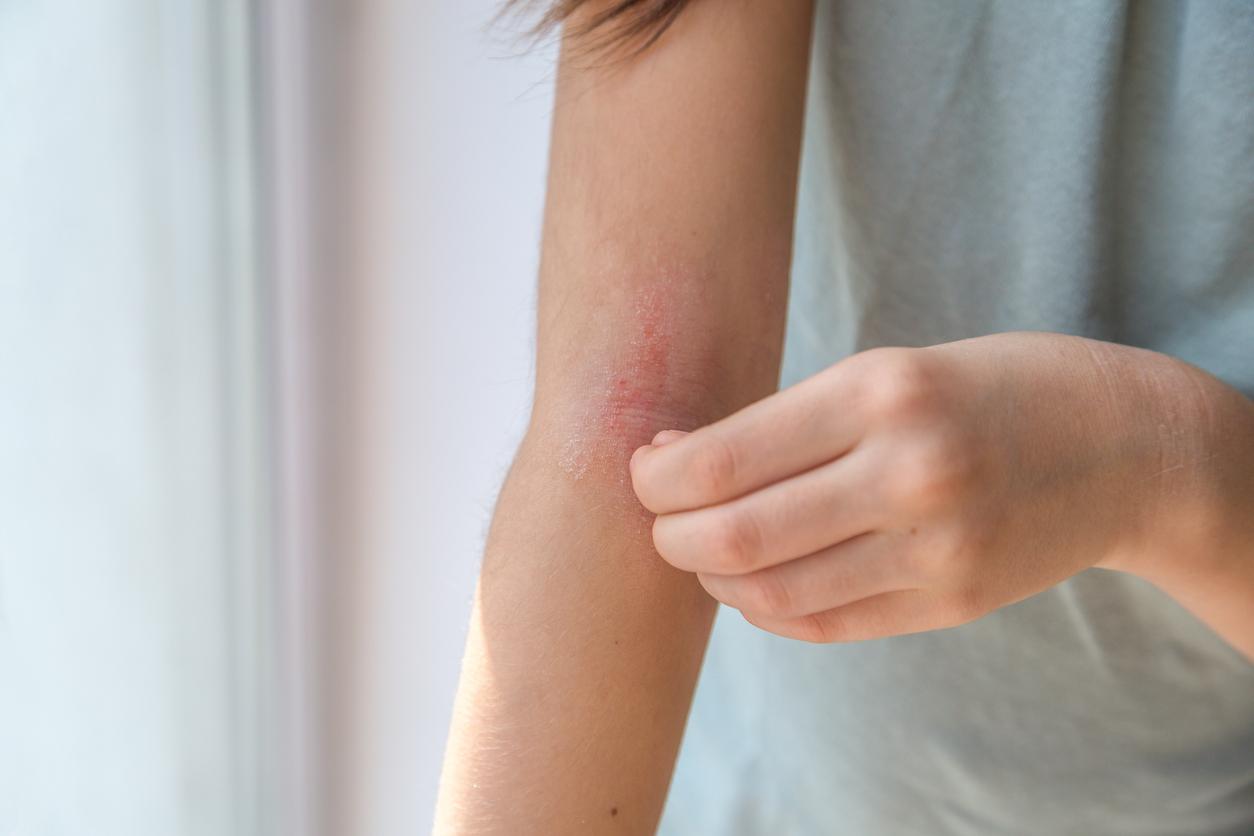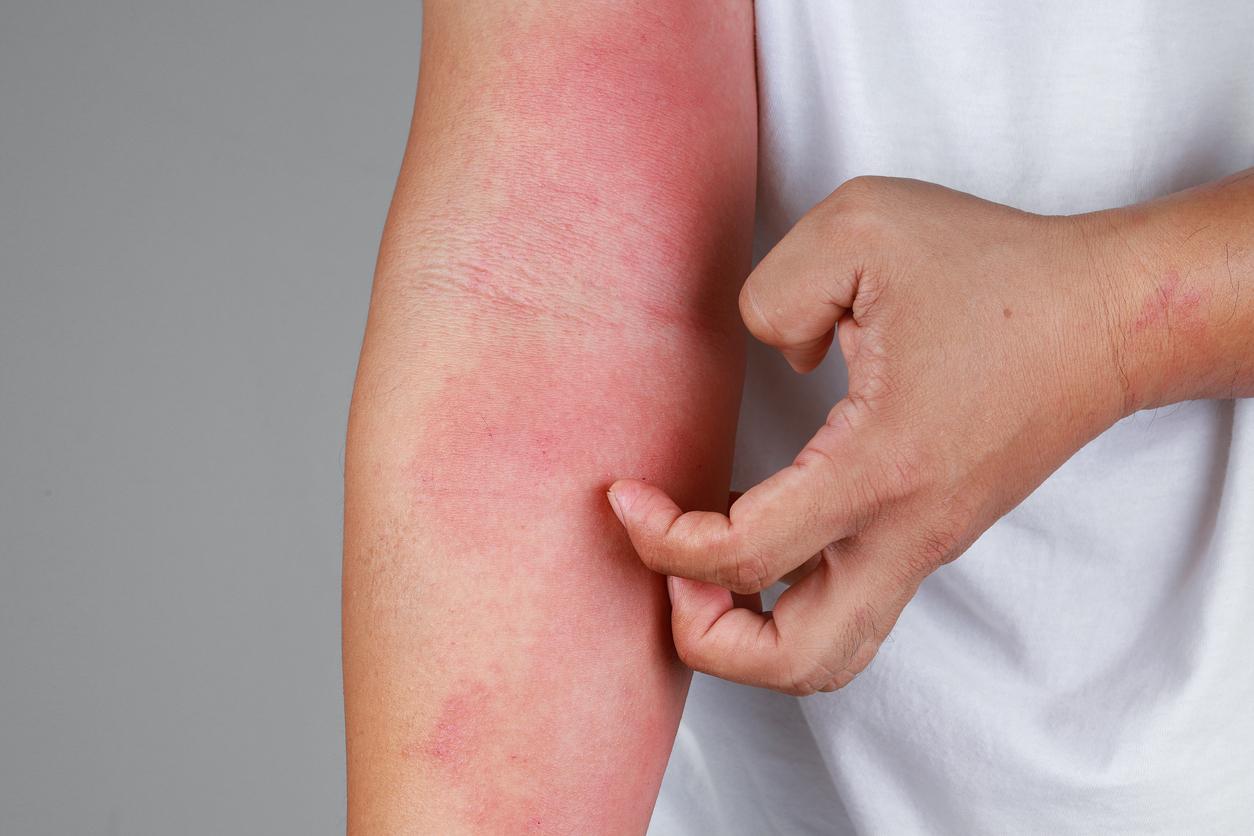To treat eczema, you could use a medicine usually prescribed to treat rheumatoid arthritis.
Researchers at Yales University (United States) conducted a study to understand whether tofacitinib citrate (Xeljanz), a drug marketed in the United States to treat rheumatoid arthritis, could suppress the immune response to origin of eczema.
They carried out a clinical trial with this treatment on 6 patients for whom conventional treatments had failed.
The results of their trial showed a decrease in the area of the body affected by dermatitis and a decrease in edema as well as an improvement in the quality of sleep. The researchers did not find any adverse effects.
“Patients were delighted with the results of the treatment and also expressed a feeling of good about themselves for the first time in a long time,” said Professor Brett King, author of the study.
The small sample size of the study implies new clinical trials, especially since in 2013, the European Medicines Agency issued a negative opinion on the use of tofacitinib citrate to treat eczema.
Eczema a disabling disease
Eczema is the most common skin disease. There are two main types of eczema: atopic eczema (general) and contact eczema (localized). If eczema is a dermatological disease, it also has consequences on the health and well-being of patients and would promote risky practices such as smoking, alcohol consumption, sedentary lifestyle and sleep disorders.
If today, conventional treatments exist, they do not succeed in completely relieving the sick. Topical corticosteroids, cortisone-based creams, help relieve acute attacks. Antihistamines are prescribed for the relief of patients with contact eczema.
Read also:
Eczema: beware of cardiovascular disease
Baby eczema: 3 rules to know
Eczema: hydrate well to limit flare-ups

















